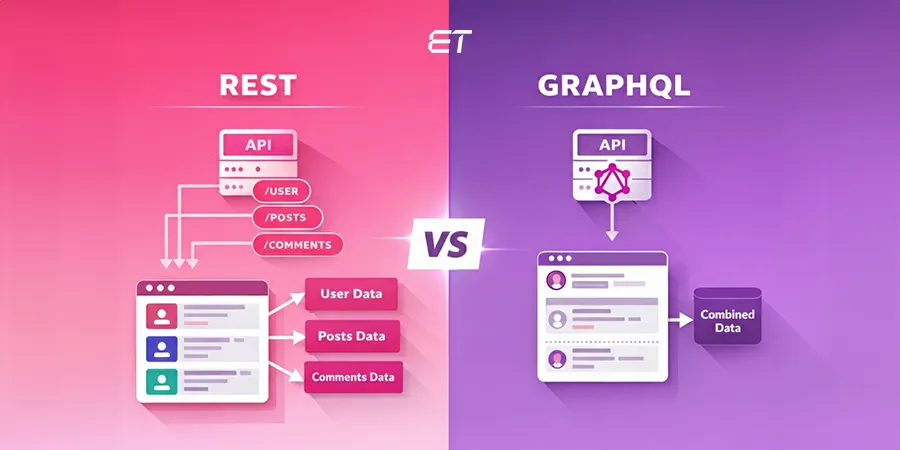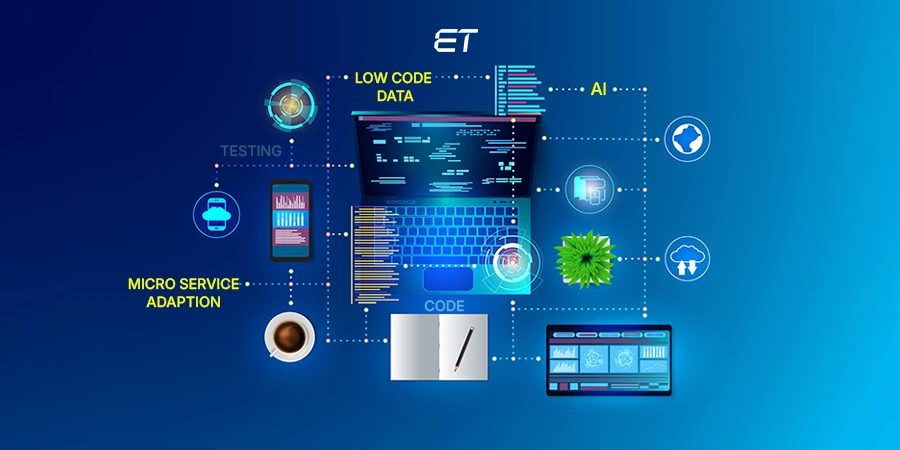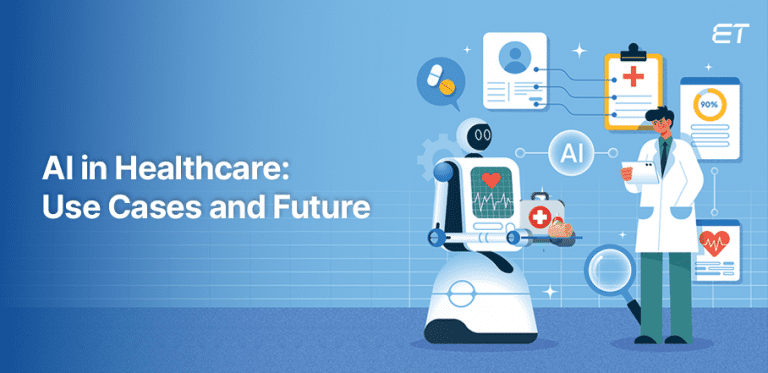
AI Use Cases in Healthcare
Imagine a world where a simple computer scan can identify cancerous cells years before symptoms appear. That is AI in healthcare, and it is happening around you!
AI can mimic human cognitive functions and rapidly transform industries from finance to transportation. Now, healthcare is poised for its own revolution, with AI applications holding immense potential.
The elaboration of AI use cases in healthcare explains how this technology can improve patient care, diagnosis, and overall well-being.
So, buckle up, as we delve into the exciting world of AI use cases in healthcare and explore how it is shaping the future of medicine.
The Current Landscape of AI in Healthcare
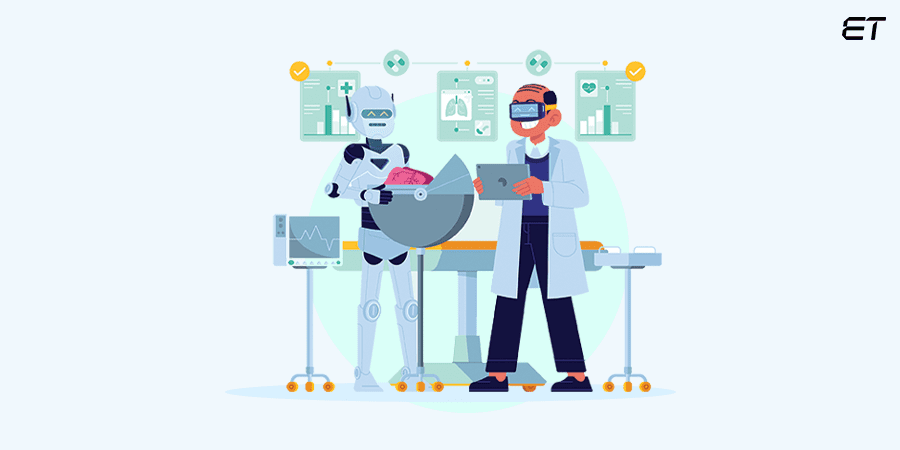
Healthcare is experiencing a surge in adopting artificial intelligence (AI). This is not surprising, considering the potential benefits.
Here is a closer look at this growing trend:
- Necessity: The rising burden of chronic diseases and a shortage of healthcare professionals are pushing the industry to embrace innovative solutions. AI in healthcare offers a way to manage workloads, improve efficiency, and potentially even bridge the gap in medical expertise
- Rapid Advancements: Breakthroughs in machine learning and data analysis are making AI tools more powerful and versatile. These tools can now analyze vast amounts of medical data, identify patterns invisible to the human eye, and even learn and improve over time
- Growing Market: The market for AI in healthcare is promising, with an estimated compound annual growth rate exceeding 40% in the coming years. This rapid growth reflects the increasing confidence and investment in AI’s potential to revolutionize healthcare delivery
- Early Success Stories: Real-world applications like AI-powered early cancer detection and virtual assistants supporting chronic disease management are already demonstrating the positive impact of AI
The rise of AI in healthcare is a significant development with the potential to transform patient care. As the technology continues to refine, we can expect groundbreaking applications to emerge in future years.

Want to develop your own healthcare IT solution? Contact our team now!
Different Types of AI in Healthcare
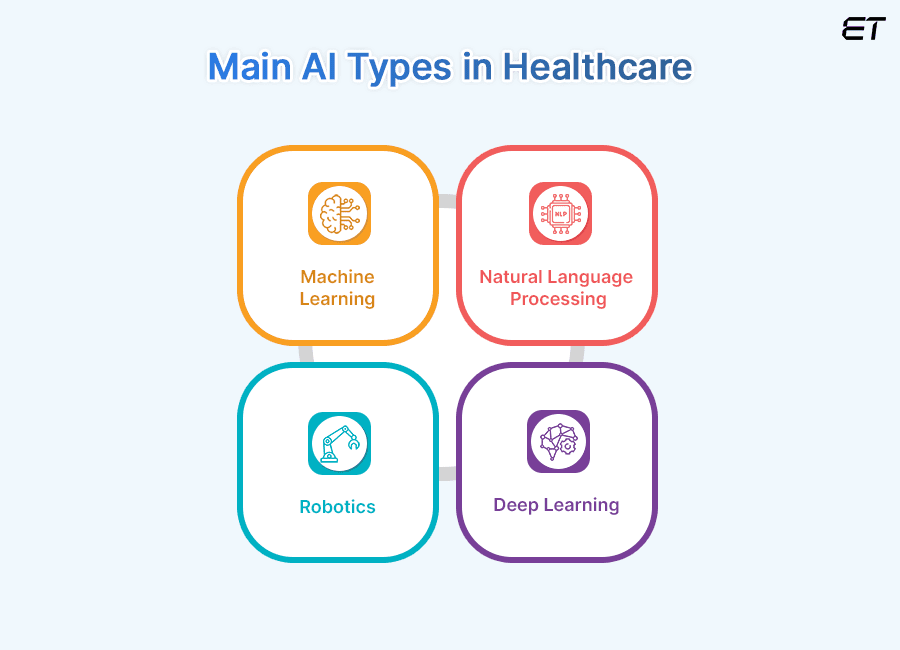
Before delving deep into the AI use cases in healthcare, you need to understand the vast utility of this technology.
Here is a brief look at the different types of AI that organizations use to boost their healthcare services.
| Type of AI | Utility |
| Machine Learning (ML) | This AI analyzes data to identify patterns and make predictions. In healthcare, ML can analyze medical images for early disease detection or predicting patient outcomes. |
| Robotics | Robotics plays a growing role in healthcare, often powered by AI for enhanced precision and control. For example, surgical robots can assist surgeons in complex procedures, leading to better outcomes and faster recovery times |
| Natural Language Processing (NLP) | This AI technique tackles the complexities of human language. In healthcare, NLP evaluates medical records, generates reports, or powers chatbots that answer patient questions and provide support |
| Deep Learning | Deep learning utilizes artificial neural networks with multiple layers, mimicking how the brain processes information. This aspect allows it to handle complex data sets, like medical images or vast patient records |
Unveiling Key Use Cases of AI in Healthcare
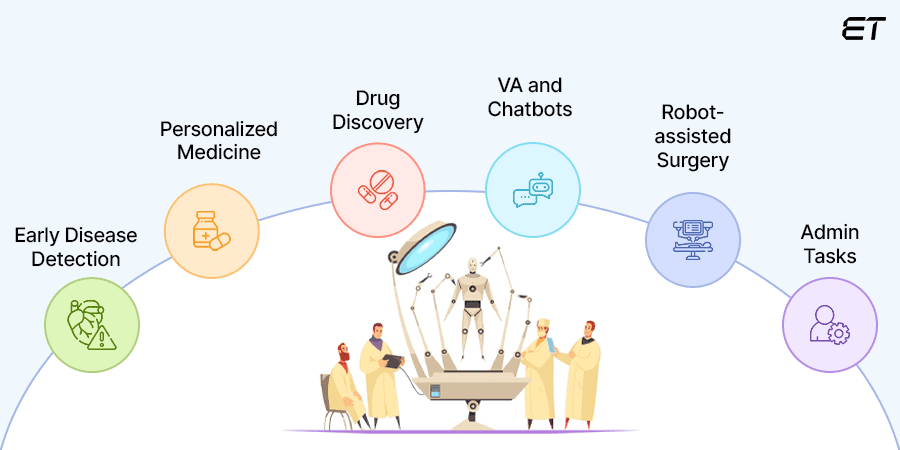
Now, let us move on to unravelling AI use cases in healthcare. Note that each use case covers several parameters that can be a blog in itself.
Still, we have covered the most vital aspects of each utility in this ‘AI for healthcare’ section.
1. AI-powered Diagnostics and Early Disease Detection
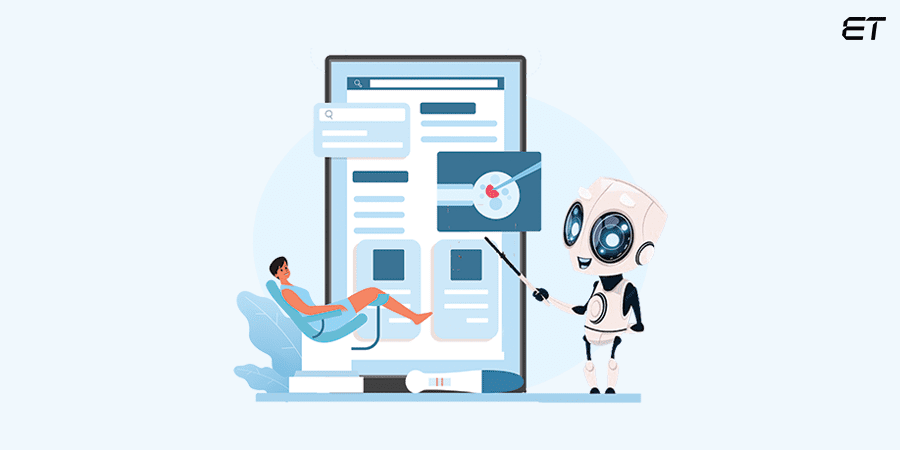
AI algorithms are revolutionizing how we utilize medical images, offering unprecedented accuracy in detecting abnormalities. This aspect paves the way for earlier disease detection.
How Does AI Detect Diseases?
AI utilizes a technique called computer vision, a subfield of AI that allows machines to interpret visual information. In healthcare, AI analyzes medical images by:
- Pattern Recognition
- Statistical Analysis
This ability to analyze images translates to real-world benefits as follows:
- Cancer Detection: AI can scan mammograms, X-rays, and CT scans for early signs of various cancers, like breast cancer or lung cancer
- Heart Disease Diagnosis: AI can also assess echocardiograms to identify abnormalities in heart structure or function
While the accuracy of AI in healthcare is impressive, it is essential to remember that it has some limitations. Here are the main ones to consider:
- Limited Understanding: AI excels at pattern recognition, but it may struggle to comprehend the underlying causes of abnormalities
- Data Dependence: The accuracy of AI models relies on the quality and volume of data they are trained on
All in all, AI works best when collaborating with human expertise. Together, they can profoundly improve patient care and outcomes.

2. AI for Personalized Medicine and Treatment
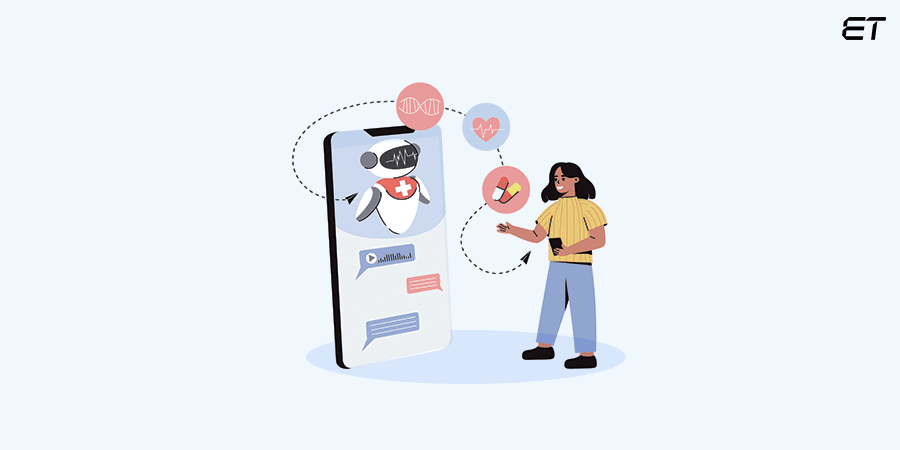
Personalized medicine is a healthcare system where treatments are designed specifically for you, considering your unique genetic makeup, medical history, and lifestyle.
How Does AI Enhance This System?
AI in healthcare excels at analyzing vast amounts of data. In personalized medicine, AI analyzes a patient’s data from various sources as below:
- Genetic Information: This data can reveal a patient’s predisposition to certain diseases and how they might respond to specific medications
- Medical History: AI can assess a patient’s past medical records to recognize patterns and risk factors
- Lifestyle Data: Factors like diet, exercise, and environment influence treatment effectiveness. AI can incorporate this data to create a more comprehensive picture
Through this analysis, AI in healthcare leads to the following outcomes:
- Precision Dosing
- Targeted Therapies
- Risk Stratification
Notably, the potential of AI in personalized medicine is promising. In the future, you can witness the rise of two groundbreaking solutions – AI-powered drug discovery and virtual treatment assistants.
So, with AI as a partner for medical professionals, healthcare can move towards a future of truly personalized medicine, where treatments are as unique as the patients.
3. AI in Drug Discovery and Development
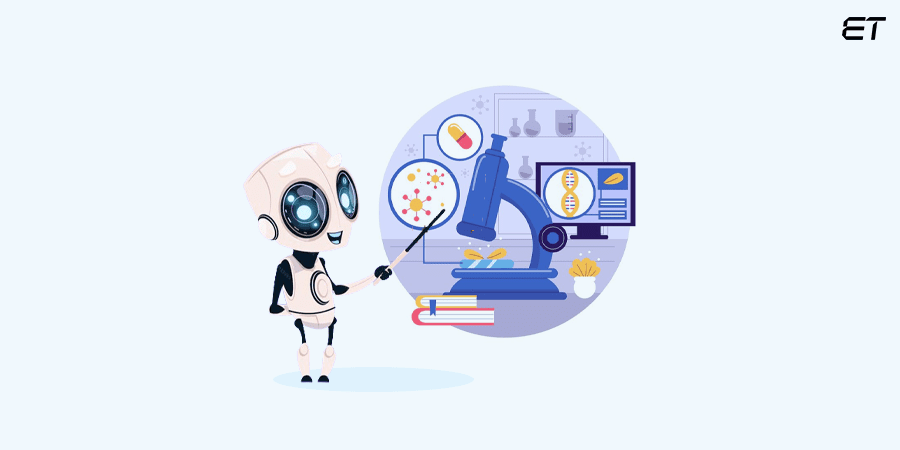
The journey to discover a new life-saving drug is often long and complex. But AI in healthcare is emerging as a game-changer.
How is AI Contributing to Drug Discovery?
AI injects new speed and efficiency in drug discovery through the following aspects:
- Analysis of Massive Datasets: AI can analyze vast datasets of biological information, including protein structures, gene interactions, and disease pathways. This trait allows it to identify potential targets for drug development
- Predictive Power: Using sophisticated algorithms, AI can predict how a molecule might interact with a specific target. This attribute helps researchers prioritize the most promising candidates for further testing
By streamlining the initial stages of drug discovery, AI has the potential to reduce the time and cost of developing new drugs.
For this purpose, AI in healthcare can prioritize formulae with a higher chance of success, reducing the need for extensive and expensive trial-and-error testing. In addition, the efficiency gains from AI-powered candidate selection can decrease the overall drug development timeline.
So, here are some exciting potential applications of AI that are relevant to drug development:
- AI-powered Simulations: AI can create virtual simulations of disease processes and drug interactions
- Personalized Medicine Advancements: By analyzing individual patient data, AI can help develop personalized drug therapies tailored to specific genetic profiles and disease variations
Overall, this powerful technology holds immense promise for boosting the delivery of life-saving treatments to patients in need.

Want to unravel our intelligent solution that helped Johnson & Johnson? Click here now.
4. AI-powered Virtual Assistants and Chatbots
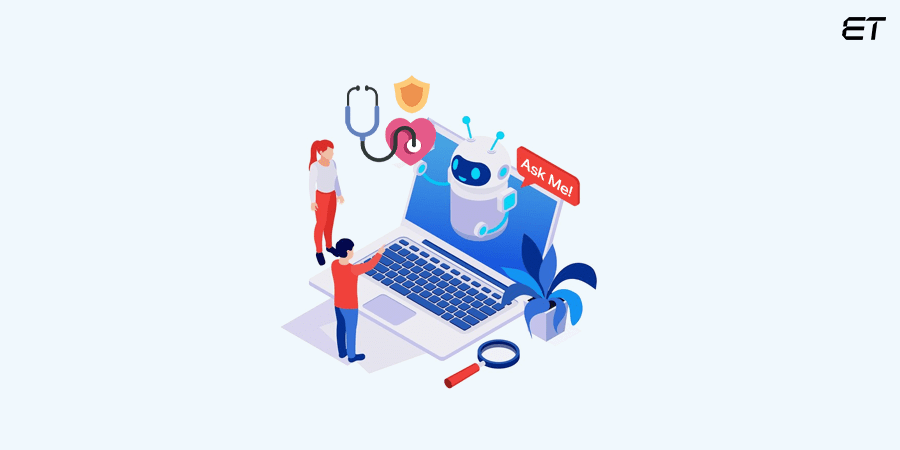
You can visualize AI-powered chatbots as tireless healthcare companions, available 24/7 to answer your questions, schedule appointments, and provide basic medical information. Even if the explanation is easy to understand, you should know a few technicalities.
How AI Streamlines Patient Interactions?
AI tools like chatbots can significantly enhance patient experiences by delivering the following outcomes:
- Answering Patient Queries: You can program these tools to address several frequently asked questions, from prescription refills to medication side effects
- Appointment Scheduling: Chatbots can efficiently manage appointment scheduling, allowing patients to book appointments online
- Basic Healthcare Information: AI chatbots or VAs can provide patients with readily available information on various health topics
In addition, AI in healthcare can help develop conversational tools that cover the following points:
- Personalized Health Information
- Interactive Learning Modules
- Self-Care Support
- Balancing Convenience with Privacy
Overall, AI-powered chatbots can become valuable assets in the healthcare ecosystem, empowering patients, streamlining communication, and promoting a more informed and engaged healthcare experience.
5. AI in Robot-Assisted Surgery
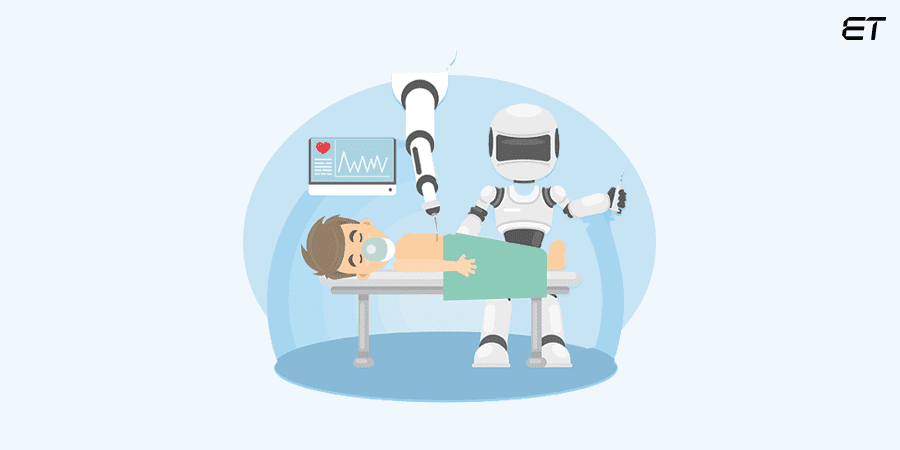
The future of surgery is here. AI in healthcare is transforming minimally invasive procedures with robot-assisted surgery.
How Does AI Become a Surgeon’s Partner?
Robot-assisted surgery utilizes robotic arms controlled by surgeons to perform delicate procedures through tiny incisions.
AI takes this technology to the next level by offering the following benefits:
- Enhanced Dexterity: AI algorithms can filter out tremors in the surgeon’s hand movements, allowing for smoother and more precise control of the robotic arms
- Improved Visualization: AI can analyze real-time surgical data and provide surgeons with magnified views of the operating field, enhancing their visualization and decision-making
- Automated Tasks: Artificial intelligence can automate certain repetitive tasks during surgery, freeing up the surgeon’s focus for more critical aspects of the procedure
So, what are the advantages of using AI in healthcare for patients? Here are some main points:
- Minimally invasive procedures
- Increased precision
- Faster recovery
AI offers enhanced precision, improved patient outcomes, and faster recovery times. However, ensuring that it remains a tool to empower surgeons is crucial, with human oversight and ethical considerations at the forefront.
6. AI for Administrative Tasks and Workflow Optimization
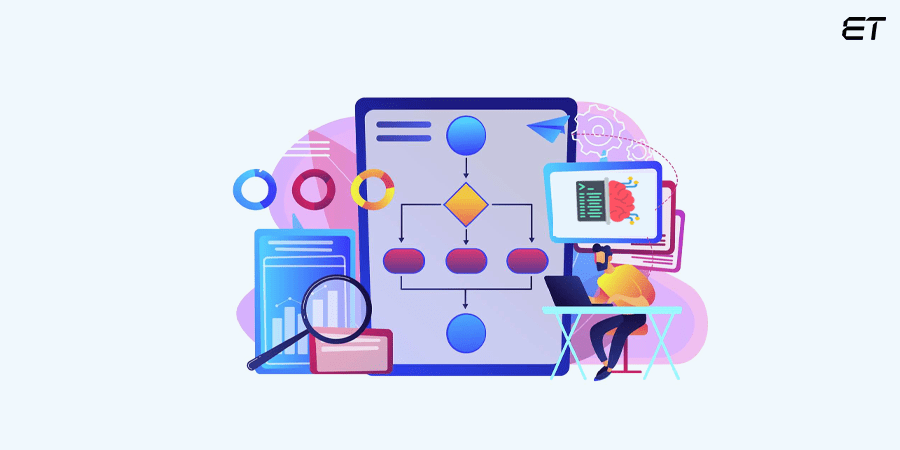
The world of healthcare administration has repetitive tasks like scheduling appointments, processing claims, and managing mountains of data. However, AI in healthcare can automate administrative tasks and free up valuable time for healthcare professionals.
How AI Manages Admin Tasks?
AI excels at handling repetitive tasks with high accuracy and efficiency. Here are some ways it refines the clerical work:
- Automated Scheduling: AI can analyze patient data and preferences to create intelligent scheduling systems that minimize wait times and optimize resource allocation
- Smart Data Entry: AI can handle tasks like automatically extracting information from medical records, reducing manual data entry, and minimizing errors
- Streamlined Claim Processing: AI can automate claim processing by reviewing medical records, identifying relevant codes, and flagging potential errors, leading to faster reimbursements and improved cash flow
So, what is the outcome of AI handling repetitive tasks? Refer the following points:
- Medical professionals can invest more time with patients
- They can also focus on complex cases
- AI in healthcare can reduce burnout
So, as AI technology continues to evolve, we can expect more innovative applications that streamline workflows, improve efficiency, and empower healthcare professionals to deliver the best possible care to their patients.

Want to develop a custom software to automate your healthcare tasks? Contact our experts today!
Future of AI Use Cases in Healthcare: A Glimpse Ahead
AI use cases in healthcare can be sufficient to convey the tremendous potential of this technology. However, as a healthcare professional, you must be more curious about the potential future of this technology.
So, let us take a quick look at two possible futuristic use cases of AI in healthcare:
- Generative AI for Drug Discovery: This branch of AI can revolutionize drug discovery by designing entirely new molecules with targeted therapeutic effects
- AI-powered Wearables for Preventive Care: AI-powered wearables can analyze user data to predict health risks, detect early signs of disease, and provide personalized coaching for preventive measures
While the future of AI in healthcare is promising, there are specific challenges to address:
- Data Privacy: Robust regulations and ethical practices are crucial for building trust in AI-powered healthcare solutions
- Bias in Algorithms: Mitigating bias in AI algorithms is essential to ensure fair access to AI-powered healthcare for all
Overall, the future of AI in healthcare is optimistic. We can create a robust and efficient healthcare system by embracing its potential while addressing the challenges.
Wrapping Up the AI Use Cases in Healthcare
AI in healthcare has immense possibilities. From revolutionizing diagnostics and drug discovery to streamlining workflows and empowering patients, this technology’s potential to improve healthcare outcomes and accessibility is indisputable.
Some AI use cases in healthcare include high-accuracy medical image analysis, assessment of a patient’s unique data, acceleration of drug delivery, answering patient queries, assisting surgeons with robot-assisted surgery, and automating administrative tasks.
If you work in this domain, developing a customized AI solution can help unlock all these possibilities. For personalized assistance on this topic, contact our team of vetted AI experts, and we will ensure the swift development of a tailor-made AI module.
Frequently Asked Questions
1. Can AI replace doctors?
No, AI cannot replace doctors. It is a powerful tool for analyzing data and identifying patterns. This activity assists doctors in making more informed diagnoses and treatment decisions
2. How can AI in healthcare diagnose diseases?
AI algorithms are trained on massive datasets of medical images (X-rays, MRIs) to detect abnormalities accurately. This ability can help doctors identify diseases like cancer or heart disease earlier, leading to better treatment outcomes.
3. Is my data safe with AI in healthcare?
Reputable healthcare institutions implementing AI solutions prioritize robust data security measures. So, you should always check with your healthcare provider about their data privacy practices before using AI-powered healthcare services.
4. How can AI personalize my healthcare experience?
AI can analyze your medical history, genetic data, and other factors to create a custom treatment plan. This approach allows professionals to tailor treatments to your needs and boost the effectiveness of your care.



